Introduction
Digital Marketing has always been a playing field where technology has gone hand in hand with creativity. And now, the game is changing with a significant player—Artificial Intelligence (AI). This post would take you from understanding AI to its role in monetizing online business ventures with an emphasis on chatbots.
Understanding AI
Artificial Intelligence, or AI as it is commonly called, isn’t as complex as it appears. In simple terms, it’s a branch of computer science where machines exhibit intelligence akin to human beings. In the world of online business, AI allows marketers to identify trends and use these insights to reach a target audience. Things as common as product recommendations on Amazon or movie suggestions on Netflix, these are all powered by AI.
Role of AI in Online Business
AI isn’t just about machine learning and complex codes. Some practical everyday examples are chatbots. Now, you may ask, what’s a chatbot? A chatbot is a machine learning program that engages in human-like conversations. They can respond to user queries or carry out basic tasks.
One might wonder how chatbots could be considered a revenue generator? Well, businesses have found innovative ways to monetize chatbots. They are used extensively in marketing strategies to improve customer experiences, gather data, and drive sales. A chatbot can initiate engaging conversations, offer personalized product suggestions, handle complaints, and more, round the clock. The improved customer service not only increases customer retention rates but also expands the customer base.
And there you have it, chatbots, a facet of AI, becoming instrumental in a booming online business landscape, assisting in increasing cash flows. So, as AI continues to evolve, it’s clear that it is becoming an integral part of online business strategy.
Chatbots in Online Business
The invention of AI has paved the way for incredible technologies, including chatbots. These are becoming an effective tool, boosting businesses and pushing an entirely new level of customer interaction. To better understand this, let’s delve into precisely what a chatbot is and what role it plays in businesses today.
Definition and Function of Chatbots
Chatbots represent computer software powered by artificial intelligence and designed to communicate or interact in a natural language. Businesses, especially those operating online, are increasingly using chatbots to automate communication and tasks. The key functionality here is their ability to understand customers’ inquiries and provide appropriate responses without human intervention.
Benefits of Chatbots in Business
The chatbot technology brings tremendous advantages to online businesses. They offer 24/7 customer service, resulting in quick resolution of queries, thus enhancing customer satisfaction levels. They also play a huge role in saving operational costs given that a single chatbot can perform the functions of many customer service reps. Lastly, harnessing the power of machine learning in these bots provides actionable insights that aid strategic planning.
Case Studies of Successful Chatbot Use
There are many success stories of chatbots being leveraged for growth and customer engagement. For instance, Sephora uses a chatbot to offer personalized beauty advice to customers, leading to increased sales per session through the bot by over 11%. Similarly, HealthJoy achieved a 97% user satisfaction rate with AI-powered chatbots fielding support queries.
In essence, the benefits that AI and chatbots present to online businesses are immeasurable. They streamline operations, improve customer service efficiency, and are a driving force for revenue generation, making them a vital cog in the modern business machinery.
AI and Cash Flow Management
In my journey exploring the integration of artificial intelligence (AI) in online business, I have come across remarkable findings. A key aspect of this integration is the role AI plays in cash flow management.
How AI Improves Cash Flow
AI substantially streamlines cash flow management. It provides real-time data that allows you to track and manage your income and expenses more effectively. Additionally, AI-powered software uses algorithms that facilitate the automation of invoicing and debt collection, thus improving payment cycles and reducing the risk of cash flow problems.
AI in Forecasting and Risk Assessment
The forecasting power of AI cannot be underestimated. Utilizing AI systems in cash flow management enables a business to conduct detailed forecasting more accurately. AI considers multiple variables and deploys sophisticated algorithms, hence, it can predict future cash flow trends and potential risks. Also, AI highlights patterns that may pose threats to the business’s financial health, allowing time for intervention.
Impact of AI on Financial Decision Making
The infiltration of AI in the monetary aspect of an online business has re-envisioned financial decision-making. It provides detailed income and expense data, making it more straightforward to identify opportunities for growth and areas to cut costs. Consequently, AI aids in making informed decisions that strengthen the financial position of an online business.
In a nutshell, AI not only improves cash flow management but also builds a more resilient and profitable online business. This journey from chatbots to cash flow has shown how leveraging AI can truly transform the modus operandi of online businesses, making them more efficient and profitable. The future of online business indeed looks promising with the continual enhancements in AI!
Monetizing AI in Online Business
Do you know how AI can be a game-changer in your online business? The fascinating journey from chatbots to cash flow is worth a deep dive. As I’ve journeyed deeper into the AI domain, it’s clear that we’re on the cusp of a revolution in online business.
Different Ways to Monetize AI
AI is making inroads in online business in several ways. First off, chatbots powered by AI have significantly improved customer service operations. They can handle several customer queries simultaneously and offer precise answers swiftly. As a result, businesses save on operational costs and improve customer satisfaction, which directly equates to higher revenues.
AI also offers personalized shopping experiences by studying the data and behavior of customers. It promotes targeted marketing, which increases conversion rates and drives higher profits.
The monetization of AI isn’t limited to chatbots and personalized marketing only. AI is also actively deployed in risk assessment, fraud detection, improving supply chains, and much more. Each one of these applications contributes positively to the cash flow of businesses online.
Effective Strategies for AI Monetization
To successfully monetize AI, building AI-powered products and services that solve real customer challenges is crucial. AI should fit seamlessly within the customer journey to enhance the value offered. Furthermore, adopting a data-driven approach and optimizing AI systems continuously is equally necessary for successful AI monetization.
Challenges in AI Monetization
While the potential is limitless, the path of AI monetization is not without its set of challenges. The initial investment can be high, and there is always a pressing need for technical expertise. AI systems also demand robust data governance and data quality management, which can be daunting tasks.
Against all odds, businesses that crack the code of AI monetization stand to gain significant competitive advantage. The journey from chatbots to cash flow in online business is no less than an adventure worth embarking upon.
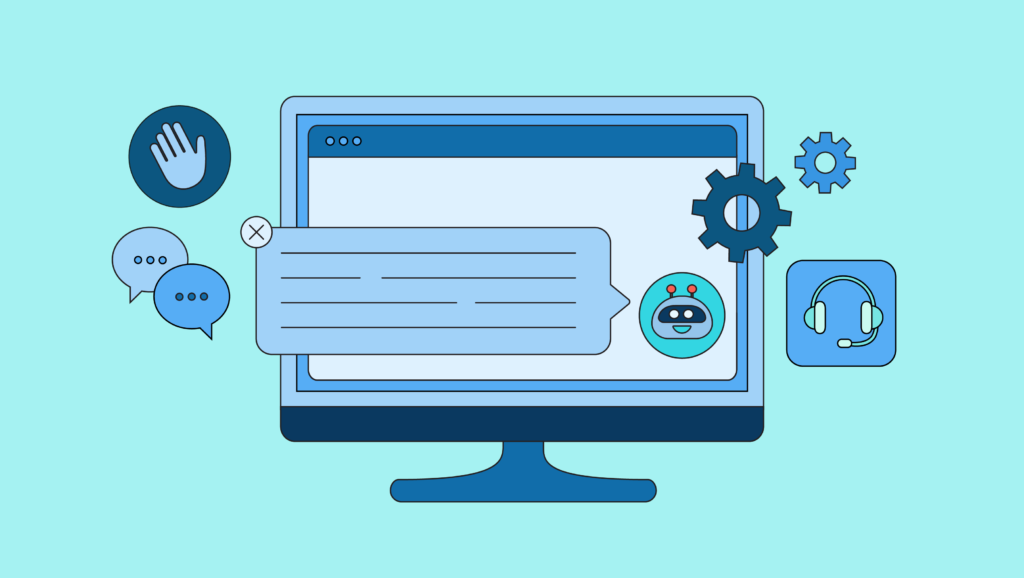
This image is property of media.sproutsocial.com.
AI Integration in Digital Marketing
In this new digital age, business has gone from a personal conversation between retailer and customer to an online transaction. To bridge the gap of personal interaction, Artificial Intelligence (AI) has emerged as a significant player. Let’s explore how AI is reshaping our way of doing business online.
Role of AI in Digital Marketing
AI has reinvented the way we market. It brings unprecedented levels of personalization, allowing businesses to tailor their content precisely to individual customer needs. AI-powered chatbots serve as the front line in customer engagement, answering queries instantly, making product suggestions, and ultimately facilitating a smoother purchase process. This takes customer service to an entirely new level. Plus, AI saves businesses resources and time as these chatbots are always available and can handle multiple customers simultaneously.
Leveraging AI for Personalization
Another incredible way AI is making waves is in the realm of personalization. AI algorithms can sift through vast amounts of data to provide personalized recommendations. It analyzes online behavior to predict what a customer may want or need, offering suggestions which significantly improve conversion rates. This automated personal touch replicates the brick-and-mortar shopping experience in the digital world.
AI and SEO
SEO is a critical aspect of digital marketing, and AI is making its mark here too. AI-powered tools can crawl your website, identify SEO issues, and suggest improvements. This ensures your website is optimized for search engine visibility. Tools like RankBrain and other AI-powered algorithms now play a significant role in determining search rankings.
Exciting, isn’t it? AI has truly bridged the gap between online businesses and customers. It’s all about providing a personal, seamless experience and AI is driving this transformation. The future sure does look promising. Isn’t it time you took a step towards AI integration in your digital marketing strategy?
Case Studies: AI in Online Business
As an enthusiastic techie, I always find AI applications in businesses engage my fascination. In this post, we’ll delve into some intriguing case studies covering how AI, specifically chatbots, are causing ripples in the world of online business.
AI Success Stories in E-commerce
Let’s start with the e-commerce industry. The real game-changer here is chatbots. They’re not just answering questions, they’re personalizing shopping experiences. Consider Amazon’s Alexa – from product recommendations to voice-controlled orders, the chatbot harnesses customer data to provide tailored shopping experiences that are smooth, immediate, and user-centric. This personalized engagement helps foster higher customer satisfaction, and in turn, stimulates increased sales.
AI Transforming Service Industries
But it’s not just e-commerce. Service industries are also being revolutionized by AI technology. Take the hospitality field for example, where chatbots are used to efficiently handle bookings, answer queries, and recommend tourist spots. They’re even showing up in the fitness industry, providing custom workout and nutrition advice based on individual body metrics and goals. No more generic plans, but tailor-made advice to maximize the benefits – all thanks to the magic of AI.
Emerging Startups Utilizing AI
Lastly, let’s brush over some emerging startups making waves by utilizing AI. Ever heard of ‘Replika’? It’s an AI-based platform that offers a personal chatbot, acting as your ‘personal friend’ that learns from your interactions. Then there’s ‘Wayve’, an autonomous vehicle tech company that believes the future of self-driving cars is not in engineered rules but in teaching cars to drive, much like humans do.
Trust me, these examples are just the tip of the iceberg. With AI, the potentialities for online business are endless!
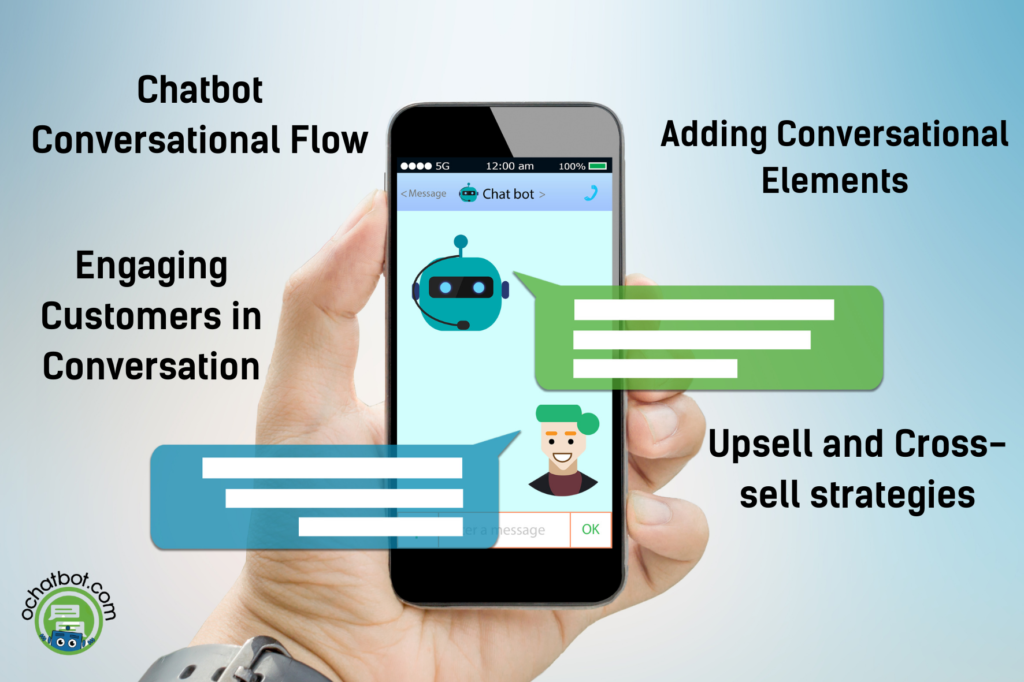
This image is property of ochatbot.com.
Potential Risks and Ethical Considerations
As we delve into the world of AI, particularly in online businesses, it’s imperative to be aware of the potential risks and ethical considerations. AI presents unique challenges that we need to navigate conscientiously to ensure a respectful and responsible approach towards its integration in businesses.
Risks Associated with AI in Business
Just like any other technological advancement, AI is not without its potential pitfalls. False positives and negatives can surface during data interpretation. Dependency on AI might make businesses more vulnerable should the technology fail. There’s also a risk of overuse or misuse of AI technology that we need to guard against. These risks are more heightened if businesses rush into AI implementation without understanding its complexities fully.
Ethics and AI: Bridging the Gap
AI, when used inappropriately, can also raise ethical questions. Issues such as privacy, security, and consent can easily be violated without rigorous ethical guidelines in place. Misused AI can potentially result in discrimination, bias, and the misuse of data. Therefore, businesses must ensure ethical AI use, which encompasses transparency, fairness, and robust data privacy.
Mitigating AI Misuse in Business
Mitigating misuse calls for proactive efforts. This involves educating ourselves and our teams about AI and its potential misuses, continually reassuring clients about data security, and prioritizing transparency. Constantly monitoring and improving AI systems is essential to detect and address any misuse promptly. The goal is to use AI to boost business growth while maintaining respect for privacy and dignity.
AI carries a wealth of potential for online businesses. However, the journey from chatbots to generating cash flow should include a roadmap that mitigates risks and prioritizes ethics. The journey into AI in online businesses should be one of growth and development, but also of responsibility and careful planning.
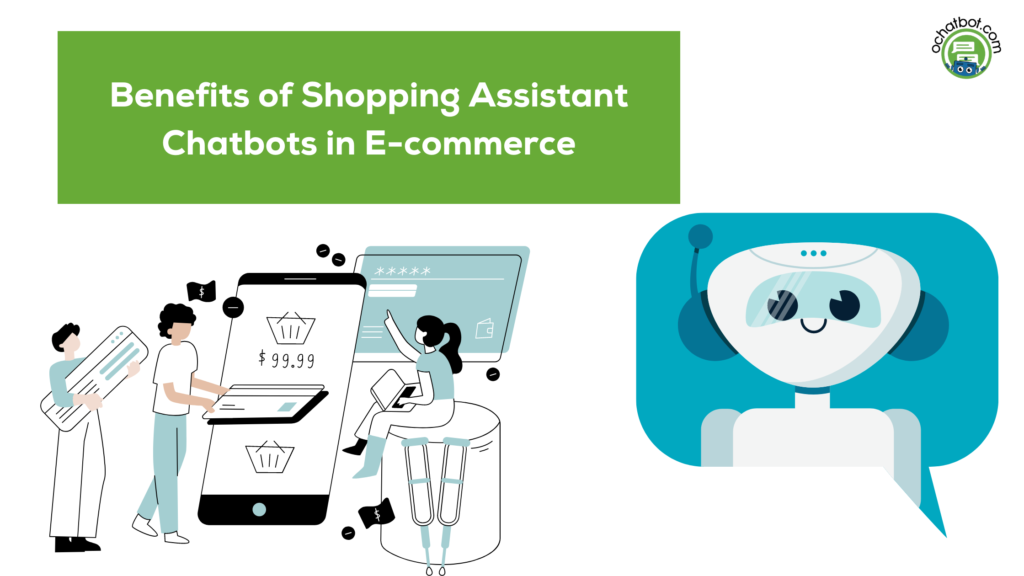
This image is property of ochatbot.com.
Arguing Against AI Myths
In this ever-evolving digital landscape, it’s quite easy to fall prey to the myths surrounding artificial intelligence (AI), especially concerning its use in online businesses and its impact on the overall cash flow. I aim to shed light on such misconceptions and articulate how AI can be a lucrative investment for your business.
Debunking Common Misunderstandings about AI
One common misunderstanding about AI is that it’s an “all or nothing” investment. Contrary to this belief, AI can be modular, i.e., it’s possible to implement AI in just specific areas of your business and still see significant improvements in efficiency and profit margins. For instance, incorporating chatbots for customer service can streamline your operations, reducing manpower costs while improving customer experience.
AI and Job Security
When discussing AI, the question of job security often arises. Many fear that AI might render certain jobs obsolete, but I see this scenario unlikely. Instead, AI will reshape the work landscape, creating new job roles that emphasize human creativity and emotional intelligence – skills machines cannot replicate.
The Limitations of AI in Business
Like any technology, AI is not without its limits. Misconceptions may arise when people assume AI can take over entirely, transforming an online business into a faceless, fully automated entity. However, the reality is that AI is a supplement, not a replacement, to human intelligence. It excels at repetitive, mundane tasks but lacks the ability to create real human connections and generate creative ideas.
In essence, we must view AI as a tool that, when effectively utilized, helps businesses maximize efficiency and revenue. This view is a healthier approach that acknowledges the power and limits of AI without falling victim to misconceptions. AI is meant to enhance our capabilities, not replace us. Our role is to guide its use intelligently to ensure it garners the results we seek.
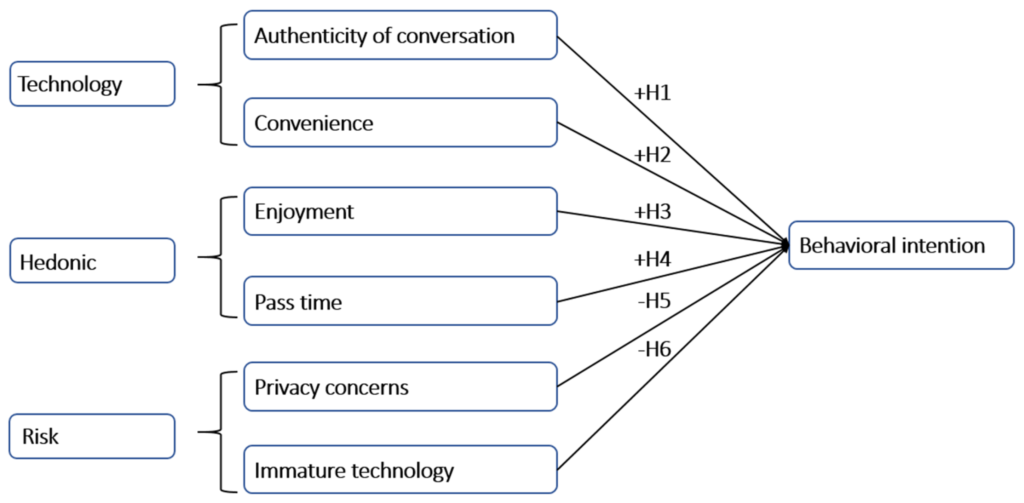
This image is property of www.mdpi.com.
Future Trends in AI for Online Business
As someone who is deeply invested in online business and digital marketing, I’ve been closely following the advancements in artificial intelligence (AI) technology and its impact on my field. And let me tell you, what a promising journey it has been, from the use of chatbots to managing cash flow effectively! This is the beginning of a new era where AI melds with online businesses to fuel growth, increase profitability, and enhance customer engagement.
Predicted Advances in AI Technology
As we venture into the future, AI’s capabilities are expanding at a tremendous rate. From powerful predictive algorithms, cognitive computing to advanced machine learning models, the way AI technology is evolving is nothing short of a technological revolution. I firmly believe that as AI continues to advance, businesses can harness its potential to automate tasks, ensure accuracy and speed in operations, and ultimately lead to robust business growth.
AI in Future Business Operations
Already, AI is disrupting traditional business operations. Be it supply chain management, human resources, or customer relationship management, AI is getting integrated everywhere. Going forward, I foresee a business world where AI not only supports but leads operations. With intelligent systems carrying out complex tasks, businesses can focus more on strategy and innovation.
AI and Future of Digital Marketing
The digital marketing arena is witnessing a paradigm shift with the advent of AI. Chatbots, for instance, aren’t just answering FAQs anymore; they are personalizing user experiences and even guiding purchase decisions with AI. But this is only the tip of the iceberg. AI will redefine and reshape digital marketing strategies. With AI capabilities like personalization, predictive analytics, and customer segmentation, marketing campaigns could become more effective than ever before.
Thus, it’s safe to say that the journey of AI in online business isn’t just a passage; it’s a transformation that paves the way to limitless possibilities. Are you prepared to embrace this change and propel your online business to new heights?
Making the Move to AI
As I delve into the exciting realm of AI in online business, I can’t help but recognize how impactful AI has been in shaping global digital marketing strategies. With rapid advancements in tech, many businesses are now leveraging AI to upscale productivity and sales, streamline operations, and provide personalized customer experiences. AI chatbots are particularly remarkable tools, acting as sales assistants, boosting interactions, and consequently aiding in exceptional spikes in cash flow. In this post, we will explore how to begin your journey into AI, from steps to implementing AI to choosing the right tools and platforms for your specific needs.
Steps to Implement AI in Your Business
The first major step in incorporating AI into your business is understanding your specific needs. Identify the areas of your business that could benefit from AI tools. Subsequently, establish a strategic AI implementation plan, outlining the objectives, resources, and timeframe. Furthermore, ensure you have a reliable data foundation since AI thrives on data.
Choosing the Right AI Tools and Platforms
Once you have a clear understanding of your needs, the next phase is selecting the right AI tools and platforms. It’s paramount to choose tools that seamlessly align with your goals and help you achieve your objectives. Remember, each tool and platform has unique strengths and weaknesses tailored to different needs.
Training and Skill Development for AI
Last but certainly not least, it’s imperative to invest in training and skill development. This isn’t limited to the IT department alone but should extend throughout the organization. The understanding of AI tools and their potential plays a key role in the effective and efficient utilization of these platforms, thus significantly influencing your movement from chatbots to cash flow.
Indubitably, transitioning to AI in your online business can have extraordinary payoffs. By making strategic decisions, investing in the right tools and training, you can leverage AI for tremendous growth and increased profitability.
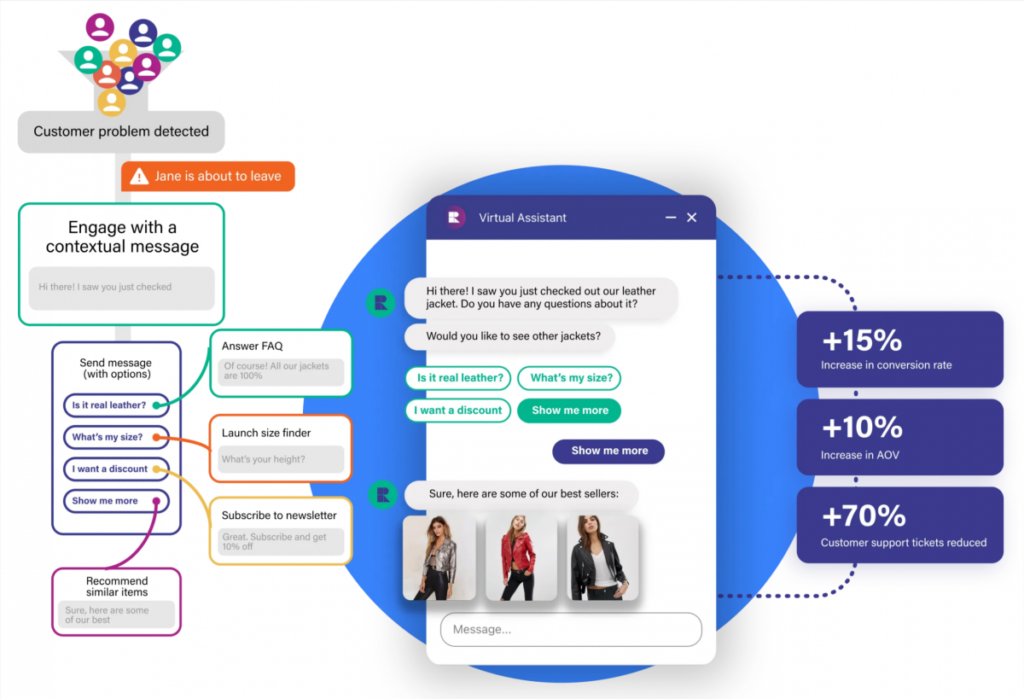
This image is property of ecommercefastlane.com.
Conclusion
I embarked on this journey from chatbots to cash flow to explore the exciting realm of Artificial Intelligence (AI) in growing online businesses. Now, as we’ve reached the end of our discourse, I must confess, the journey was exhilarating, insightful, and above all, eye-opening to the endless possibilities AI presents.
Through our voyage, we delved into the specifics of how AI is pioneering a revolution in online business. We saw how chatbots—driven by AI—are taking over customer service operations, providing fast, accurate, and personalized service at all times. We appreciated how AI is enabling predictive analysis, helping businesses foresee customer behavior and trends. We marveled at how these technological advancements are enhancing not just the operational efficiency but also, in turn, bolstering the revenue generation and cash flow of businesses.
Remaining Questions about AI
However, despite our deep dive, there’s a whole ocean of knowledge and questions about AI left to explore. What are the risks of AI? What is the economic and social impact of automating jobs? What ethical concerns does AI pose? These issues demand our attention just as much as the fascinating benefits of AI.
Final Thoughts on the Future with AI
In conclusion, AI seems to be the key in unlocking the next level of success in online business. Yes, there are challenges to reckon, and yes, there probably might be a few hiccups along the way. But from what I’ve seen and shared, the benefits far outweigh the roadblocks. As we move forward, let’s keep an open mind about AI, ready to embrace its extraordinary potential while also being mindful of the hurdles. Here’s to cashing in on AI and shaping the future of online business!

